How a US mission to push a Trump deal in Congo unravelled
SA is not xenophobic, Ramaphosa tells Africa Investment Forum
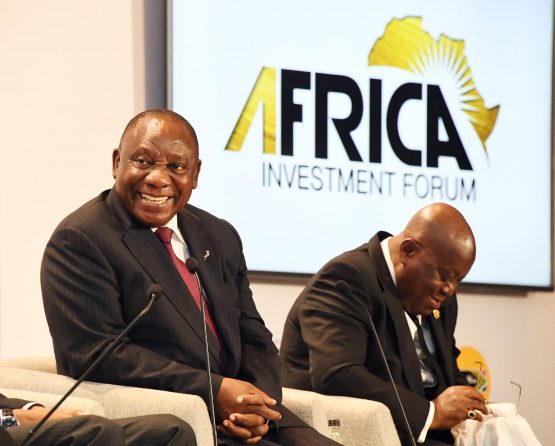
Cyril Ramaphosa seen with Ghana’s President Nana Akufo Addo, right, on the opening presidential panel session of the Africa Investment Forum. Image: Supplied
President Cyril Ramaphosa faced tough questions around the recent resurgence of xenophobic violence in South Africa at the high-level Africa Investment Forum, that got underway on Monday.
During an opening presidential session that included Rwanda’s Paul Kagame, Ghana’s Nana Akufo Addo and Mozambican Prime Minister Agostinho do Rosario, Ramaphosa was quizzed on the sensitive topic. He was asked how the SA government is addressing the issue and about its impact on the country and on SA/Africa relations.
Ramaphosa delivered a convincing reply, applauded by both the leaders on the panel and over 1 500 delegates attending the event, which is being hosted by the African Development Bank in Johannesburg for the second time.
“South Africa has always welcomed people from all over the world … And, inherently, South Africans are not xenophobic,” said the president.
Ramaphosa noted that many countries around the world are facing issues around migration, together with the economic and social conditions that come with it. He said that the South African government had decided not to have camps for refugees and other migrants, as some countries do. “Some have criticised us for this, but we did not want such restrictions and wanted them [migrants] to be a part of South Africa.”
He however says this approach comes with challenges, especially “when countries go through difficult economic periods” as South Africa has in recent years. “Self interest and fault-lines appear in such instances, but the nonsensical incidents of xenophobia cannot be tolerated.”
The president says recent attacks on people from other countries are criminal acts. “The unfortunate thing is that a number of people died, and many of them were South Africans who got caught up in the whole fracas that took place in a number of areas. When things like this happen and the criminal element kicks in, people start seeing opportunities to act in a very improper way.”
He also raised the issue of fake news, which he says fuelled the situation locally as well as in other African countries.
“The problem that often happens with all this is that fake news becomes the order of the day. Much of what happened was fuelled by fake news, and some of it happened in such an ugly and gross way.”
“There were many pictures sent around. People were seen jumping out of buildings that are burning, and they said this is what is happening in South Africa, and it wasn’t,” says Ramaphosa. “It was people who were jumping out of a building that was accidentally on fire in another country. They transposed it and said this is what is happening in South Africa, and this fuelled the reaction of people in other countries, Nigeria for instance.”
Some South African-owned businesses such as Shoprite stores in Nigeria faced retaliatory attacks, following the xenophobic incidents in SA in September. Also, several African leaders, including Kagame, boycotted the 2019 World Economic Forum on Africa event in Cape Town.
Ramaphosa says that he was in close contact with Nigerian President Muhammadu Buhari at the time. “Security forces in Nigeria took a firm stance to help and defend South Africans who are there who have businesses. Similarly, we took action here in SA too, with more than 200 people arrested. Things then settled down.”
He says he was pleased that Buhari did not cancel his visit to South Africa in October, when the issue was discussed in detail.
“An early warning system [for xenophobic incidents in the country] has been set up and we’ve sent envoys to other African countries to update them on the situation. We’ve decided to also set up a fact-finding team. As a nation, South Africa has a great appreciation for other African countries. We are not an island and have also been supported by other countries,” Ramaphosa noted.
He stressed that the South African government is “irrevocably committed” to acting against xenophobia. “We want people to feel comfortable and safe in SA, but of course there [needs to be] processes to [deal with migrants] being regularised with the necessary permits, which happens in all other countries.”
The three-day Africa Investment Forum ends on Wednesday.
By Suren Naidoo



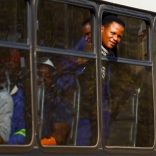
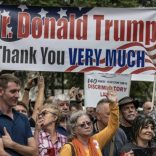
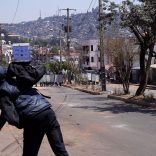
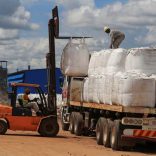
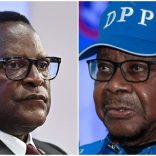





Leave a Reply
Be the First to Comment!
You must be logged in to post a comment.
You must be logged in to post a comment.